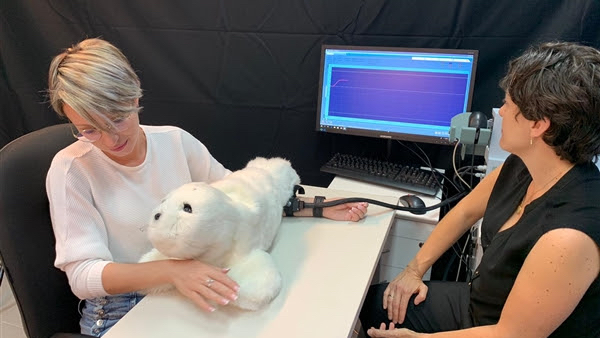Fluffy social robots touted as needed substitute for direct human interaction amid ongoing pandemic.
Israeli researchers at the Ben-Gurion University of the Negev have found that a one-time, short session with a seal-like furry robot reduced pain, increased happiness and reduced oxytocin levels.
Human-to-human contact has been found to bolster mood and reduce pain in several previous studies. However, when human-to-human contact is not an option, as is the case with the Coronavirus (COVID-19) pandemic, a furry social robot can induce similar effects, Dr. Shelly Levy-Tzedek of the Department of Physical Therapy and her team learned.
PARO is a Japanese-produced therapeutic social robot that looks like a furry white seal. It makes seal-like noises and moves its head and flippers in response to being touched and spoken to.
Levy-Tzedek and her team discovered that a one-time interaction with PARO, which lasted less than an hour, improved mood and reduced mild and severe pain.
When participants touched PARO, they experienced greater pain reduction than when it was simply present in the room with them.
They also discovered lower levels of oxytocin in those who interacted with PARO than in the control group participants, who did not meet PARO at all.
Oxytocin is a hormone released when people snuggle up or bond socially, known also as the “cuddle hormone” or the “love hormone.”
High oxytocin levels have been found in mothers playing with their children and between romantic partners, so a lower level of oxytocin is surprising. However, more recent studies have shown that outside of close relationships, oxytocin production is an indicator of stress and therefore a reduction could indicate relaxation.
“These findings offer new strategies for pain management and for improving well-being, which are particularly needed at this time, when social distancing is a crucial factor in public health,” says Dr. Levy-Tzedek.
Originally posted at israeltoday.co.il


